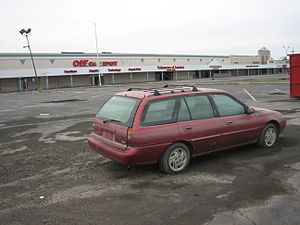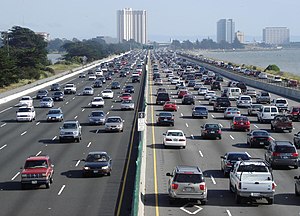I would like to add a bit of anecdotal experience of living in a large city and commuting and the insidious effect that parking minimums have on cities, generally, and transit, specifically.
I live in the Jefferson Park neighborhood of Chicago. It is part of the city’s famed bungalow belt and is located in the extreme northwest side of the city. Though my part of neighborhood was plated in the 1920’s, most development occurred in the 1940’s and ’50s. As such, it was developed with the automobile in mind. Despite the fact that most homes are on postage size 25’x125′ lots (thank you 1920’s plats!), most of the commercial corridors filled in during the 1940’s-’50s and are auto-oriented.
Because my home has a back alley garage (guaranteed parking) and much of the neighborhood has easy free parking thanks to zoning that requires parking minimums, I actually drive a fair amount, much more than I’d like to. Accordingly,
“A guaranteed parking spot makes use of the automobile a more attractive option”
much to the detriment of transit and pedestrian space.
When the car takes precedence in transportation planning, other things get neglected. When retail is built into “centers” and “strip malls” and not corner stores, pedestrians and transit get neglected. And what are shopping centers and strip malls: just urban design that satisfies parking minimums.



